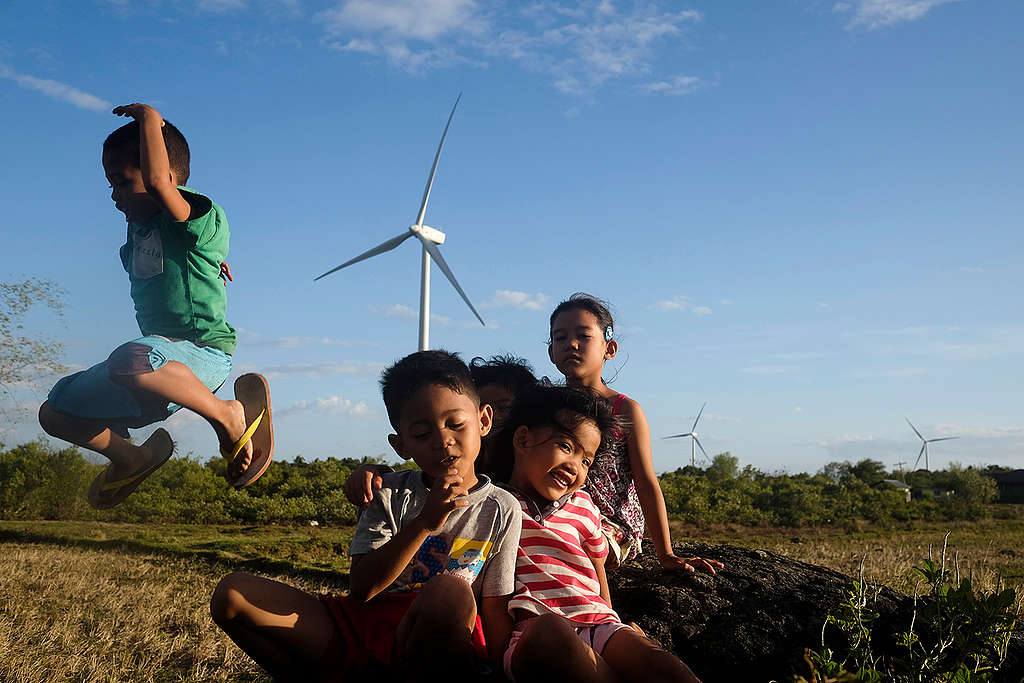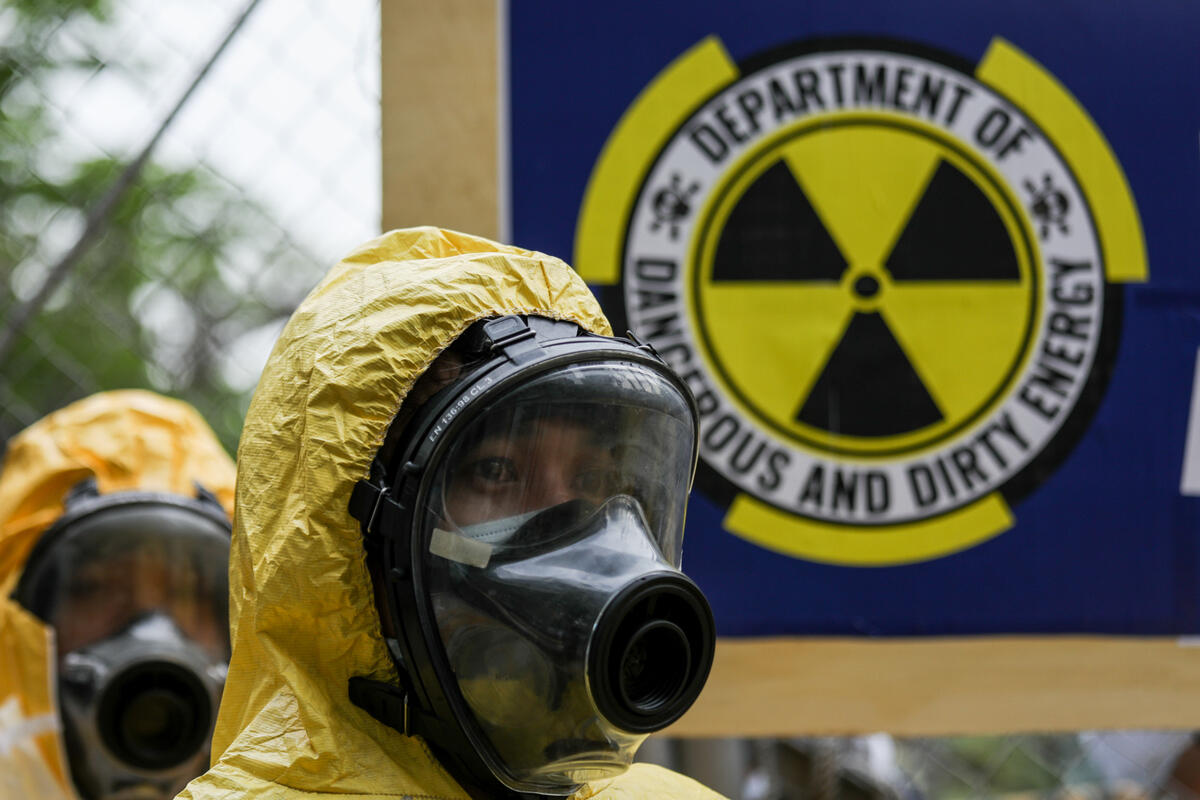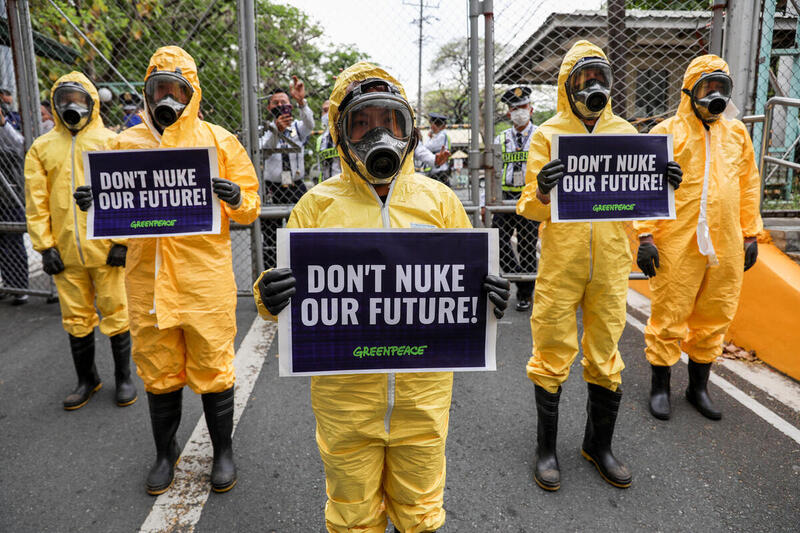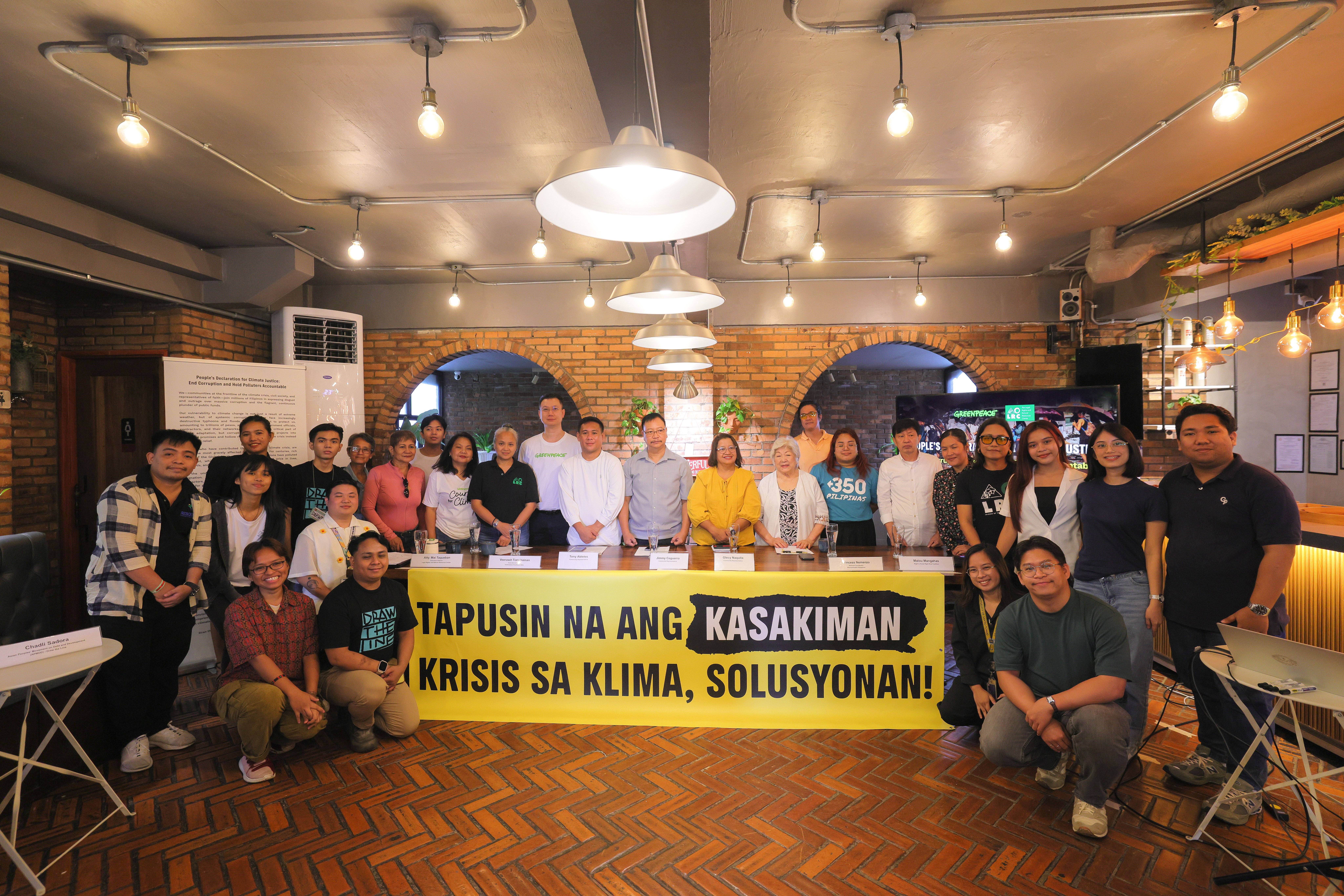Quezon City, Philippines, 24 September 2021 – Greenpeace Philippines urged the government to update the country’s air quality standards following Tuesday’s release of the World Health Organization’s (WHO) new guidelines[1]. The group is calling on the Department of Environment and Natural Resources (DENR) to adopt the new limits and expedite the review of the country’s air quality standards, which have largely remained the same since 1999.
“The new WHO guidelines affirm that air pollution, even at low levels[2], has serious impacts on health,” said Greenpeace Campaigner Khevin Yu. “The DENR can’t continue sitting on outdated standards at a time when we need to be protecting people’s health and saving lives. The work, however, does not stop at setting stricter limits. Putting in place and implementing policies to reduce pollutant emissions is key. In other words, the standards are meaningless without government action.”
WHO has set more stringent limits on PM2.5 and PM10[3], ozone, nitrogen dioxide, sulfur dioxide and carbon monoxide. Notably, the prescribed new limits for PM2.5 is 5 µg/m3 (micrograms per cubic meter) for the one year average level, and 15 µg/m3 for the short term 24-hour average level. The DENR’s acceptable values for PM2.5, updated in 2020, sets the limit for PM 25 at 25 µg/m3 for the long term one year average level, and 35 µg/m3 for the short term 24-hour average level[4].
Analysis[5] of PM2.5 data aggregated by IQAir found that air quality failed to meet these new limits in all of the world’s 100 biggest cities last year[6]. In 2020, Metro Manila recorded 13 µg/m3, exceeding the new standards by nearly three fold. Greenpeace says that the data is a conservative estimate given the lack of adequate air pollution monitoring in the mega-city.
Greenpeace says that the new standards present a clear case for the immediate phase out of fossil fuels. Air pollution from fossil fuels—primarily coal, oil, and gas—is attributed to cause an estimated 27,000 premature deaths per year in the Philippines, and can cost the country up to approximately 1.9% of GDP in economic losses annually according to a 2020 study[7].
“This is a wake-up call for both the government and private companies that continued use of fossil fuels is harmful to human health,” Yu said. “A just transition to renewable energy does not only protect the climate, it also protects people,” Yu said. “The current administration should accelerate the decommissioning of existing coal plants and the cancellation of remaining coal projects in the pipeline.”
Notes
[1] The WHO standards can be accessed at this link.
[2] Experts recognize that there is no safe level of air pollution exposure. Long-term exposure to low-levels of air pollution can cause a gradual but serious deterioration of our health, resulting in diseases like lung cancer, stroke, diabetes, and, ultimately, in avoidable deaths.
[3] PM is short for “particulate matter,”microscopic particles that are small enough to travel deep into the lungs, even into the bloodstream. PM10 refers to particles smaller than 10 μm (micrometers), and PM2.5 to particles smaller than 2.5 μm.
[4] DENR DAO-2020-14-PM2.5.pdf
[5] See the Greenpeace briefing paper here.
[6] In 8 of the 100 cities, PM2.5 data for 2020 was unavailable due to a lack of government monitoring or disclosure.
[7] Toxic air: the price of fossil fuels
Contact
Maverick Flores
Communications Campaigner
[email protected]
+63 917 621 1552

Renewable energy is the key to our country’s energy independence. But coal companies and politicians are holding us back.
TAKE ACTION


